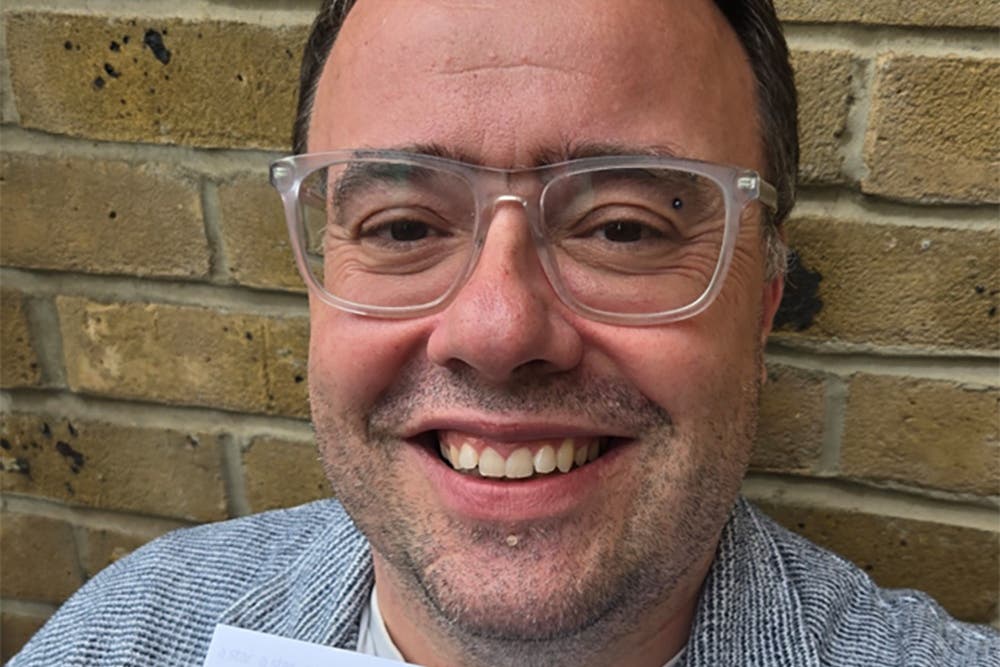Scientist achieves English GCSE aged 49 to fulfil dream as a biology teacher
James Winch from Newham, London, described his English GCSE as a ‘locked gate’ to becoming a secondary school teacher.

A 49-year-old has received Grade 6 in GCSE English to pursue his dream of becoming a biology teacher to inspire students to find their passion in science.
James Winch, from Newham in east London, left school without any GCSEs but was determined to pass his exams in English, which he needed to start his training as a biology teacher in secondary education.
Mr Winch, who previously worked for 20 years in the NHS as a biomedical scientist and did some teaching in clinical microbiology and infection, described his GCSE as a “locked gate” preventing him from pursuing a career as a teacher.
“I think that this was very much an exercise to actually go I’ve made my mind up,” he told the PA news agency.
I'd like to be the person that inspires somebody else that wins that passion to actually go into medical science because it is amazing
“I want to transition into secondary education, and this is the one gate that’s actually locked.
“Now I’ve opened it, I can actually move forward into that and look at developing myself in other ways in that education environment.”
The aspiring teacher described learning GCSE English at 49 years old as “two different worlds” compared to when he was 16.
“I left school early due to external issues and didn’t really understand the magnitude of not having GCSEs until it was the point of looking at getting into the workplace,” he explained.
“It’s like two different worlds because at school you’re told that you have to get the amazing grades to go on and do whatever you feel that is your thing.
“But one thing that I’ve learned with age is it’s not the be-all and end-all.
“It actually means something at the end for me because I can see the practical application of it, whereas at school, you don’t always see that practical application because you’re in the system.”
He hopes becoming a teacher will inspire students to adopt a passion for science.
“I’d like to be the person that inspires somebody else that wins that passion to actually go into medical science because it is amazing,” he said.
“If I can give someone just that little bit of a flame, they’ll follow on and actually do more than I did.”
Mr Winch will begin his postgraduate certification in education in 10 days time at the University of East London and currently works with Now Teach, a charity supporting people looking to change their career and become a teacher.
“(Now Teach) actually helped me a lot, because they’ve been a resource that you can continually bounce ideas off of,” the aspiring teacher said.
“You can actually speak to people who have been through that, to give you that reassurance, to actually almost underline that you are making a really good choice, but it’s actually being able to give you the support and the tools to actually be able to realise your own potential.”
Sometimes you don't achieve in your grades what you you feel you should, but that shouldn't diminish your passion for actually wanting to follow a career path
He hopes his journey can inspire others to pursue their career aspirations.
“Sometimes you don’t achieve in your grades what you feel you should, but that shouldn’t diminish your passion for actually wanting to follow a career path,” he said.
“We’re we are only human. Some of us are not gifted academically and may find it more challenging, but there is support available.
“All you have to do is take that first step, and so many people will actually help.”
Bookmark popover
Removed from bookmarks